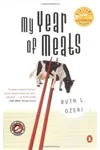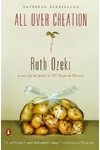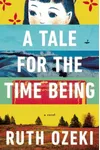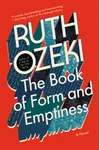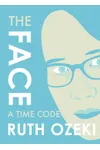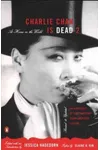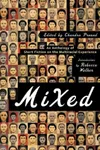Picture a Japanese-American storyteller who weaves Zen philosophy, environmental intrigue, and heartfelt narratives into novels that captivate readers worldwide—meet Ruth Ozeki! A novelist, filmmaker, and Zen Buddhist priest, Ozeki’s work, like the Booker Prize-finalist A Tale for the Time Being, blends Eastern and Western perspectives, tackling science, culture, and identity with wit and warmth.
Born to a Japanese mother and American father, Ozeki’s unique heritage shapes her storytelling, making her a literary bridge between cultures. Her novels, translated into over 30 languages, have earned her a global following and cemented her as a luminous voice in contemporary fiction.
The Making of Ruth Ozeki
Born on March 12, 1956, in New Haven, Connecticut, Ruth Ozeki grew up navigating her mixed-race identity in a world not always ready for it. The daughter of a linguist-anthropologist father and a linguist mother, she was steeped in language and culture from an early age. After graduating summa cum laude from Smith College in 1980 with degrees in English and Asian Studies, she ventured to Japan on a fellowship to study classical Japanese literature at Nara Women’s University. There, she immersed herself in Noh drama, mask carving, and even worked as a bar hostess in Kyoto’s entertainment district—a colorful start to her creative journey.
Returning to the U.S., Ozeki dove into filmmaking, working as an art director on low-budget horror films before directing documentaries for Japanese television. Her early films, like the award-winning Halving the Bones, showcased her knack for blending personal and cultural narratives. By the late 1990s, she turned to writing novels, finding it a cheaper and more liberating medium than filmmaking.
Ruth Ozeki’s Unforgettable Stories
Ozeki’s novels are vibrant tapestries of humor, tragedy, and social commentary, often exploring the intersections of technology, environment, and identity. Her debut, My Year of Meats (1998), is a witty, poignant tale of two women connected by a TV cooking show, exposing the dark side of the meat industry. It won the Kiriyama Prize and marked Ozeki as a bold new voice.
All Over Creation (2003) digs into the world of GMO potatoes and environmental activism, earning praise from Michael Pollan for its sharp insight. Her 2013 masterpiece, A Tale for the Time Being, follows a Tokyo schoolgirl’s diary discovered by a novelist named Ruth, weaving quantum physics, Zen, and the 2011 tsunami into a spellbinding narrative. It won the Los Angeles Times Book Prize and was shortlisted for the Man Booker Prize. Her latest, The Book of Form and Emptiness (2021), won the 2022 Women’s Prize for Fiction, telling the story of a boy who hears objects speak, blending grief, consumerism, and Buddhist philosophy.
Ozeki’s style is playful yet profound, often incorporating metafiction and her own life—like naming characters after herself. Her work pulses with theatrical influences from Noh and Shakespeare, balancing slapstick comedy with deep emotional resonance.
Why Ruth Ozeki Matters
Ruth Ozeki’s impact lies in her ability to make complex issues—climate change, cultural identity, mental health—accessible and deeply human. As a Zen Buddhist priest ordained in 2010, she infuses her stories with mindfulness and compassion, inviting readers to reflect on their place in the world. Her role as a professor at Smith College, where she’s now Professor Emerita, has inspired countless young writers to explore their own voices.
Globally, her novels resonate for their universal themes and transcultural lens, offering a fresh perspective on what it means to be human in a connected, chaotic world. Ozeki’s legacy is one of empathy, curiosity, and fearless storytelling.
About Ruth Ozeki
- Born: March 12, 1956, New Haven, Connecticut
- Key Works: My Year of Meats, A Tale for the Time Being, The Book of Form and Emptiness
- Awards: Women’s Prize for Fiction (2022), Los Angeles Times Book Prize (2013), Kiriyama Prize (1998)
- Fun Fact: She adopted the surname Ozeki from an ex-boyfriend to reflect her Japanese heritage.
Snag A Tale for the Time Being and dive into Ruth Ozeki’s magical, mind-bending world of stories that linger long after the last page!
